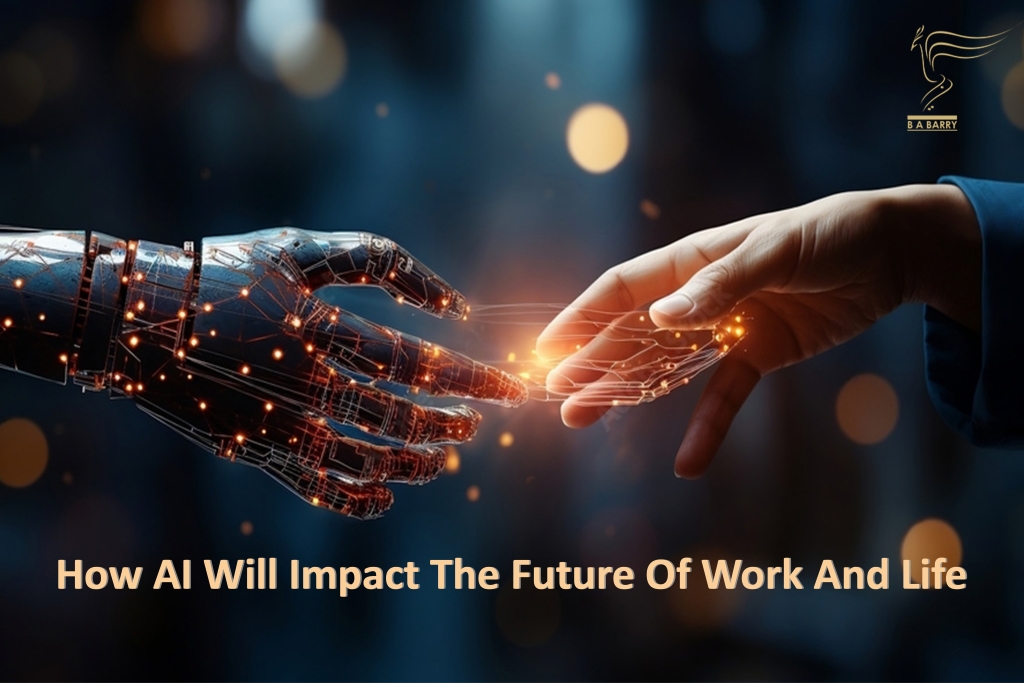- Tokyo : 09:59 |
- Singapore : 08:59 |
- Dubai : 04:59 |
- London : 00:59 |
- New York : 19:59 |
- Sydney : 11:59

Artificial Intelligence (AI) is revolutionising our world, impacting various aspects of work and life. In our previous blog post, "The Future of Work: In-Demand Jobs by 2030," we explored the careers that are anticipated to experience high demand in the coming decade.
Now, let's dive deeper into one aspect that will significantly impact these future job opportunities – Artificial Intelligence (AI). We will explore the rapid evolution of AI, its potential to reshape industries and its impact on productivity and decision-making processes. We will also address concerns regarding job displacement and ethical considerations.
Artificial Intelligence has become increasingly significant in today's world. It refers to the development of intelligent machines capable of performing tasks that typically require human intelligence. From voice assistants to self-driving cars, AI has already permeated numerous areas of our lives.
One major effect AI has is automating repetitive and mundane tasks. Through machine learning algorithms and natural language processing capabilities, AI technologies can streamline these activities. By taking over these routine duties, workers have more time for complex problem-solving and creative endeavours.
AI tools are enhancing workplace productivity by enabling efficiency gains across various domains. For instance, chatbots powered by AI can handle customer inquiries promptly while reducing human employee workload. These advancements help businesses serve customers better while increasing overall operational effectiveness.
The ability to analyze vast amounts of data quickly makes AI a powerful ally in decision-making processes. With advanced algorithms at their disposal, organisations can extract valuable insights from complex datasets that would be impossible or time-consuming for humans alone. This empowers businesses to make informed decisions based on reliable information.
While there are concerns about job displacement due to automation driven by AI technologies, it is important to note that new job opportunities will arise as well. The demand for professionals skilled in developing AI systems, data analysis techniques and machine learning models will increase substantially as industries adapt to this technological shift.
AI's transformative influence extends across multiple sectors such as transportation, finance, healthcare, retail, etc. Already we see how autonomous vehicles are revolutionising transportation, AI algorithms are enabling more accurate financial predictions and healthcare systems benefit from AI-powered diagnostics. As AI continues to evolve, the potential for further disruption across industries is immense.
AI's growing prevalence raises ethical concerns that demand our attention. Issues like privacy infringement and algorithmic biases need to be carefully addressed. Additionally, there is a fear of job displacement due to automation. To mitigate these concerns, responsible implementation of AI technology must be prioritised by both developers and policymakers.
The impact of Artificial Intelligence (AI) on multiple industries cannot be overstated. Mr. Basem Barry, Founder and CEO of the B A Barry Group, acknowledges that AI has the potential to significantly improve our lives. It is crucial to recognize that its deployment needs to be guided by robust ethical frameworks to ensure its positive impact on society.
While AI may automate certain jobs, it will also create new opportunities, particularly in AI development, data analysis and machine learning. It is essential to consider the potential negative impacts also, such as job displacement.
AI has the power to shape the future of work and life remarkably. From automating mundane tasks to enhancing decision-making processes and creating new employment opportunities, its impact will continue to grow exponentially.
It is paramount to approach this future with caution while ensuring the responsible deployment of AI technologies to maximize benefits while minimising risks associated with ethics and job displacement. The challenge is to balance the advantages of AI with its potential negative impacts and to work collaboratively to ensure that its deployment is ethical, beneficial and sustainable for everyone.